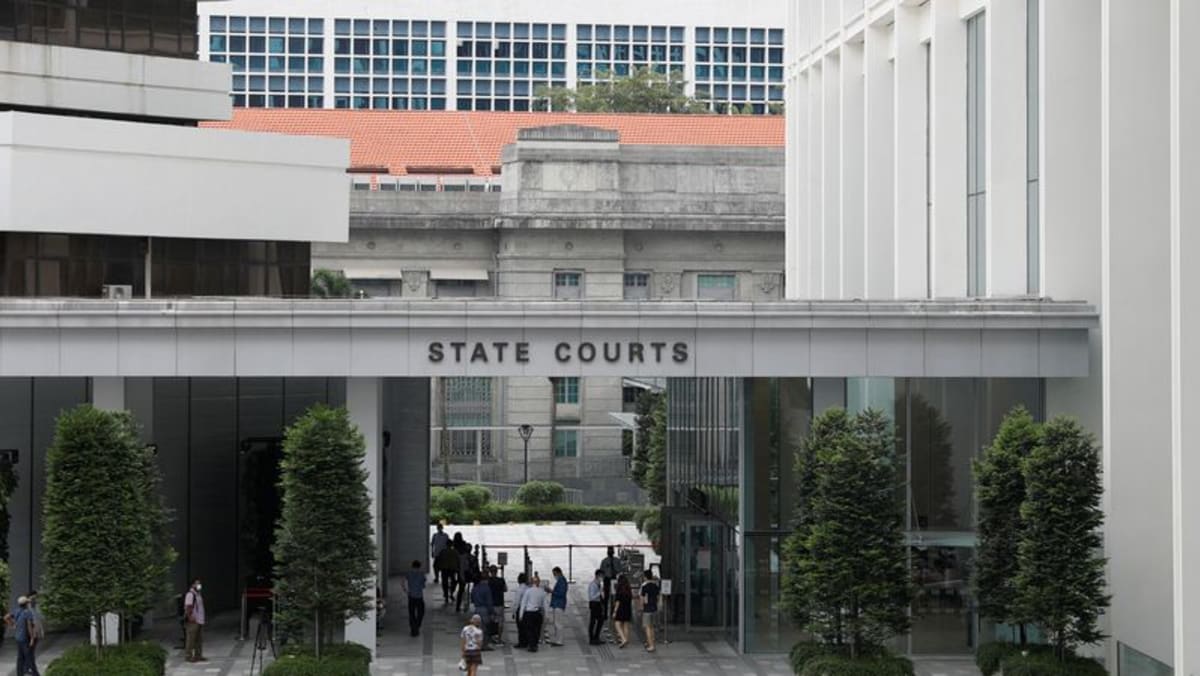SINGAPORE: A farm worker who was caught urinating into a drain tried to bribe his way out of a potential fine.
Nanjaijumpa Kham-Ai, 54, offered S$7 (US$5) to two auxiliary police officers deployed to the National Environment Agency (NEA) to let him go without enforcement action.
On Monday (Jun 2), Nanjaijumpa, a Thai national, was jailed for 10 days upon pleading guilty to one count of corruption. Another count of corruption was considered for his sentencing.
Nanjaijumpa came to work in Singapore in 2017 and was a worker staying at a farm along Lorong Semangka in Sungei Tengah at the time of the offence.
After work on Dec 17 last year, Nanjaijumpa cycled to a mobile phone repair shop near Sungei Tengah Lodge to have his malfunctioning phone fixed.
The staff asked for S$200 but Nanjaijumpa only had S$150. He paid S$100 with a promise to pay the balance later.
He then returned to his bicycle intending to cycle back to his residence to get money. At around 7pm, Nanjaijumpa was urinating into a drain near his parked bicycle when the two auxiliary police officers spotted him.
The two officers, Mr Ong Seng Hock and Mr Prabakar Hisparan, were employed by Certis Cisco Auxiliary Police Force and were deployed to the NEA as enforcement officers.
They were tasked with conducting enforcement action against those caught committing environmental offences.
The duo then introduced themselves as NEA enforcement officers and asked Nanjaijumpa for his particulars to prepare a summons for a fine.
As Nanjaijumpa was in a rush to collect the money before the shop closed, he asked Mr Ong to let the matter go, adding that it was common for people to urinate into that drain.
He offered Mr Ong S$7 to let him go without enforcement action, but the officer declined the money. Nanjaijumpa then turned to Mr Hisparan with the same offer.
Mr Hisparan similarly declined the money, leading Nanjaijumpa to repeat his offer to Mr Ong, who refused the sum.
Undeterred, Nanjaijumpa walked towards Mr Hisparan and placed the money into the officer’s sling bag. Mr Ong promptly asked Nanjaijumpa to take the money back, and Nanjaijumpa complied.
Mr Ong told Nanjaijumpa that public servants could not accept bribes. Mr Hisparan called the police and Nanjaijumpa was arrested.
The prosecution sought seven to 10 days’ jail for the accused, who is a first offender.
Deputy Public Prosecutor Tung Shou Pin told the court that Nanjaijumpa’s actions were somewhat persistent as he had gone so far as to put the money in Mr Hisparan’s bag even after he declined the bribe.
“However, we acknowledge that the entire exchange was brief and lasted less than 30 seconds,” Mr Tung said.
“Fortunately, both Mr Ong and (Mr Hisparan) were not tempted by the accused’s offer to bribe them out of taking enforcement action against him.
“Had either of them accepted the bribe, this would have undermined Singapore’s hard-earned reputation for integrity and incorruptibility in the public service.”
For corruption, an offender could be jailed up to five years, or fined up to S$100,000, or both.
